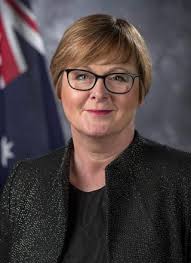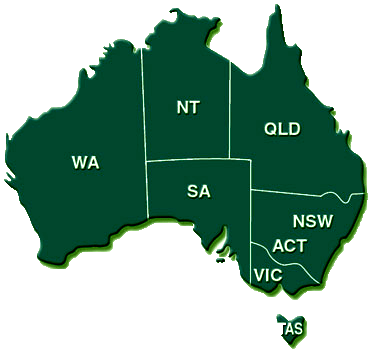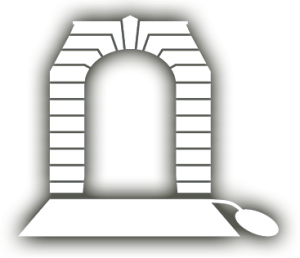Scott Morrison will set up a special prosecutor to deal with any Australian servicemen accused of war crimes in Afghanistan, with the findings of the Brereton Inquiry to be released next week.
The Prime Minister warned Australians on Thursday that difficult news is set to emerge from the inquiry into the alleged actions of Australian soldiers in Afghanistan over more than a decade.
“The Office of the Special Investigator will address the criminal matters made in the Inspector General’s report and investigate those allegations, gather evidence and, where appropriate, refer briefs to the Commonwealth Director of Public Prosecutions for consideration,” he said in Canberra.
“There is a significant number of incidents or issues to be investigated further and that investigation will be inherently complex. The investigation will require cooperation with international agencies and the evaluation of large amounts of material.
“The office will be established within the Department of Home Affairs and staffed with experienced investigators, legal counsel and other support personnel.
“It will include investigators from the Australian Federal Police and state and territory police forces with the rec it is experience and skills. It will leverage the Australian Federal Police investigative capability and powers.”
Former inspector-general of intelligence Vivienne Thom will oversee the Defence Forces’ implementation of recommendations from the Brereton Inquiry into Afghanistan war crimes.

Ms Thom and University of Tasmania vice-chancellor Rufus Black will lead an oversight panel to ensure defence culture changes once the Brereton Inquiry is released.
Scott Morrison has warned Australians that “disturbing content” will be revealed about SAS actions in Afghanistan over the past decade.
Defence Minister Linda Reynolds said in Canberra that the independent panel will ensure necessary culture changes are made.

“Nothing will be out of bounds for this inquiry,” Senator Reynolds said.
“That is exactly the purpose, so that we have accountability and transparency that sits out of the ADF chain of command and outside of government.”
Author: Richard Ferguson Reporter The Australian
RELATED ARTICLE
Defence ‘to strip offenders of medals’
Defence has warned it is prepared to strip bravery medals from special forces soldiers if it emerges through the Brereton war crimes inquiry “a person’s entitlement to an award may no longer exist”.
Prosecutions flowing from the inquiry are set to take years to run through the courts, leaving the sacking of serving operators and the stripping of medals as immediate options for Defence to deal with those implicated in crimes such as murder and torture.
The accuracy of bravery citations for some of the nation’s Afghanistan war heroes has been questioned in evidence to the inquiry by serving and former special forces soldiers.

Defence told The Australian that any decision to cancel an award would hinge on a recommendation by the Chief of the Defence Force, Angus Campbell, based on advice from a service chief “or other authority” including the Inspector-General of the Australian Defence Force.
A medal could be cancelled without a cabinet or committee process, as long as the award holder had been granted “procedural fairness”, Defence said.
“If a service chief or other authority considers that a person’s entitlement to an award may no longer exist, the Chief of the Defence Force may ask the Minister for Defence to recommend to the Governor-General that the person’s award be cancelled,” the department said.
It said decisions to review or remove awards would be taken on a case-by-case basis.
“The decision to cancel an award is not taken lightly and depends on the individual circumstances,” Defence said.
The department has been undertaking a review of its awards and honours policy ahead of the release of the Brereton report.
According to Australian and British tradition, a bravery medal would not normally be stripped from a war criminal unless it was awarded for action in which the crime was committed, or if the reported version of events was later found to be falsified.
One former SAS operator said there were real questions over the validity of medals awarded to some special forces soldiers during the Afghanistan conflict.
“There were some awards where those who witnessed certain acts were not seeing the whole picture, or the ones who were shameless self-promoters got the awards over the quiet achievers who refused to blow their own trumpet,” he said.
Defence has urged commanders of bases to “review force protection measures” ahead of the reports release to prevent personnel being targeted with abuse.
Veterans and serving soldiers, including more than 330 witnesses to the inquiry, have also been urged to make use of welfare services if they need them.
The IGADF said last year it was investigating up to 55 alleged breaches of the laws of war by Australian personnel during the nation’s 13-year on-the-ground commitment in Afghanistan.
It’s understood that number has been significantly whittled down over the course of the inquiry to focus on a core group of alleged offenders.
It is expected the report will criticise the “warrior culture” which was allowed to develop over the years, particularly in the SAS.
Command failings are also likely to be identified, amid complaints senior officers allowed non-commissioned officers too much power and authority.


